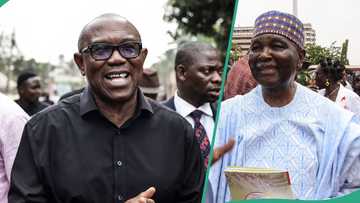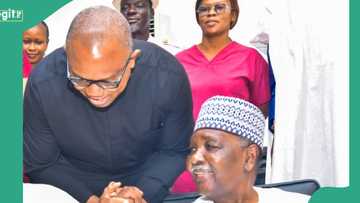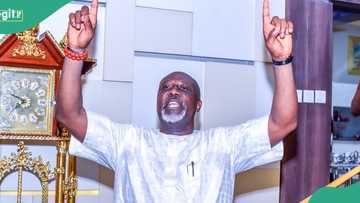Igbos Vs Yorubas: Council Lists 5 Historical Reasons for Prolonged Feud, Proffers Solutions
- The Yoruba Council Worldwide (YCW) President, Hassan Oladotun, identified critical historical, political, and socio-economic factors fueling the Igbo-Yoruba feud
- Oladotun condemned a recent viral video in which a Canada-based woman, Amaka Patience Sunnberger, made threatening remarks against Yorubas and Benins
- Among other things, to foster unity, Oladotun proposed a national dialogue addressing these root causes
FCT, Abuja - The Yoruba Council Worldwide (YCW), led by its President Hassan Oladotun, has identified critical historical, political, and socio-economic factors contributing to the longstanding feud between the Igbo and Yoruba ethnic groups in Nigeria.
A recent viral video viral video in which one Amaka Patience Sunnberger, a Canada-based woman, made threatening remarks against Nigerians of Yoruba and Benin descent.
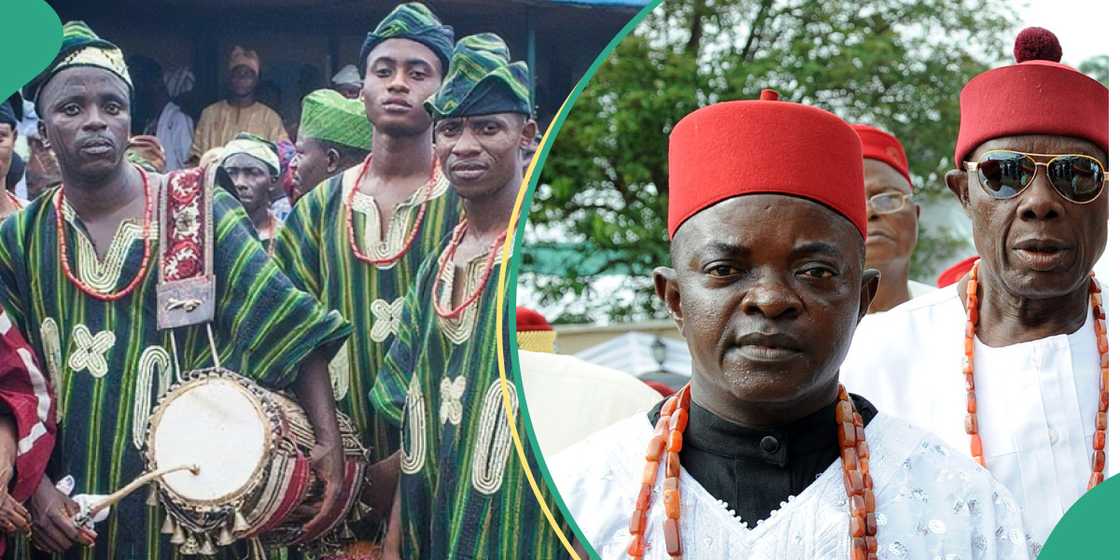
Source: UGC
As noted from the video, Amaka was heard saying:
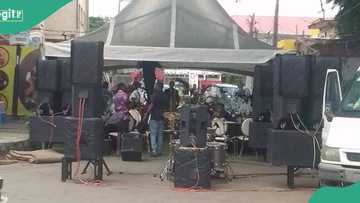
Read also
PHOTOS: Birthday celebrant, DJ, 3 others arrested as Lagos govt takes action against environmental nuisance
“Record me well; it's time to start poisoning the Yoruba and the Benin. Put poison in all your food at work. Put poison in your water, so that you all die one by one.”
PAY ATTENTION: Legit.ng Needs Your Help! Take our Survey Now and See Improvements at LEGIT.NG Tomorrow
Reacting to this, Oladotun condemned this action and called on Interpol to have her arrested immediately.
However, before now, there have been instances where some individuals of Yoruba descent also called for the evacuation of Igbos in Lagos.
Legit.ng notes that the feud between the Yorubas and the Igbos has been a major concern and has significantly affected the growth of Nigeria.
Reacting to this episode of tribal intolerance, Oladotun, speaking exclusively with Legit.ng on Saturday, August 21, outlined potential causes and solutions aimed at fostering unity and peace between the two communities.
Oladotun: Almagamation of protectorates causing problems
Oladotun traced the conflict's origins back to the colonial era, particularly the amalgamation of the Northern and Southern Protectorates in 1914.
He pointed out that the British colonial indirect rule system laid the groundwork for ethnic tensions by creating a power imbalance, particularly favouring the North.
He said:
"The foundation for this entrenched conflict of supremacy was laid during the British Empire's takeover of our land.
"The North was presumed to be in charge, and this indirect rule system created deep-seated animosities that have now been transmitted into the political space."
Oladotun speaks on political rivalries, military Coups
The YCW president highlighted the 1966 coup, led predominantly by Igbo officers, as a significant flashpoint in the Igbo-Yoruba rivalry.
The coup, followed by a counter-coup and the ensuing Biafra War, deepened the divide between the two groups.
He explained:
"The Biafra War further strained relations between the Igbos and Yorubas.
"The Igbos felt betrayed by the Yoruba leadership during the war, particularly due to the stoppage of food supplies to Biafra, which they saw as an act of hostility."
How socio-economic factors fueling caused feud - Oladotun
Oladotun also pointed to socio-economic differences as a source of tension.
Igbos and Yorubas are known for their industrious nature, but the competition for economic dominance, particularly in Lagos, has exacerbated the rivalry.
He said:
"The Igbos have made significant investments in Lagos, which has led to the perception that they have a claim to the city.
"This belief has been a source of friction, especially during elections where ethnic sentiments are heightened."
Feud fueled by religious, cultural differences - Oladotun
Religious and cultural differences have further complicated the relationship between the two groups.
While the North is predominantly Muslim, the South is a mix of Christians and traditional religions, with Yorubas being more religiously diverse.
He said:
"The religious differences, particularly the Christian-Muslim divide, have influenced political alliances and heightened mistrust between the groups."
Oladotun proposes solutions for lasting peace
Oladotun proposed several solutions to bridge the divide between the Igbos and Yorubas.
Key among these is the need for a national dialogue that addresses the root causes of the conflict, saying:
"We need to have a frank conversation about our status as Nigerians.
"This country belongs to all of us, and we must find ways to ensure equity and fairness in governance."
Oladotun also called for institutionalising a rotational presidency among Nigeria's geopolitical zones, ensuring every region gets an opportunity to lead the country.
He suggested:
"A rotational presidency would help balance power and reduce the feeling of marginalization among the regions. It's essential for promoting unity and stability."
Obi blasts woman threatening Yoruba, Benin people
In a related development, Legit.ng reported that former presidential candidate Peter Obi has strongly condemned tribalism and hate speech in response to a viral video featuring a woman threatening to poison Yoruba and Benin people.
Obi, who has consistently advocated for national unity, called on Nigerians to reject divisive rhetoric and focus on the nation's collective challenges.
PAY ATTENTION: Сheck out news that is picked exactly for YOU ➡️ find the “Recommended for you” block on the home page and enjoy!
Source: Legit.ng


